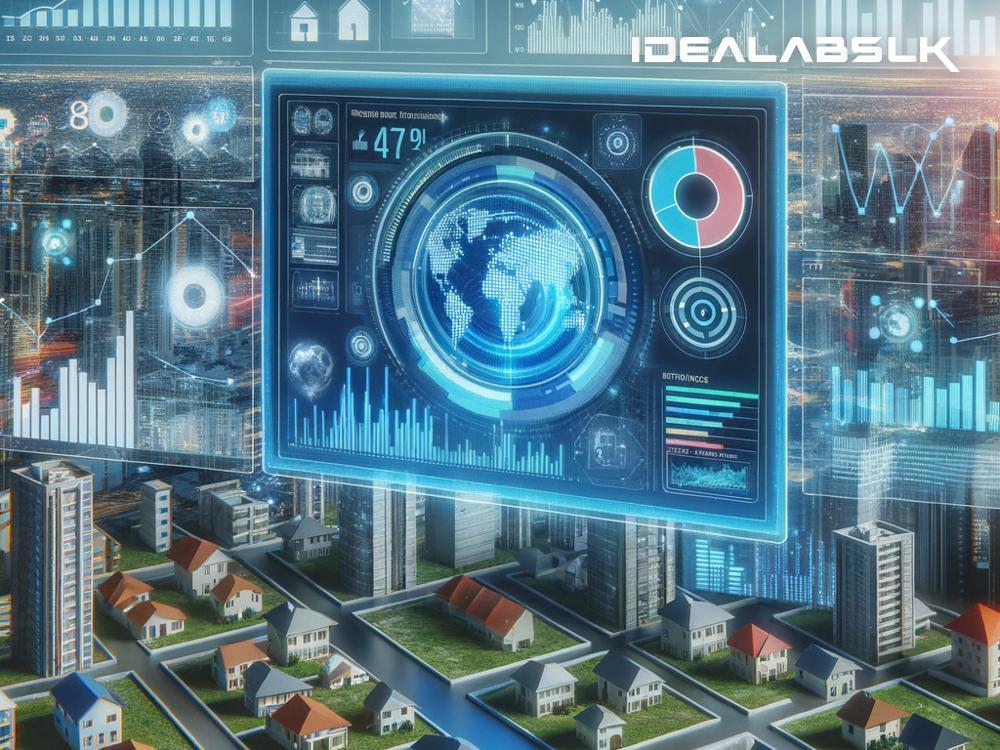AI for Real Estate: Understanding How Market Trends Affect Property Prices
The real estate industry is no stranger to change, constantly adapting to new market trends and shifts in consumer preferences. However, predicting these changes and their impact on property prices has always been a complex task. This is where Artificial Intelligence (AI) steps in, revolutionizing how we understand and anticipate the effects of market trends on real estate values.
The Role of AI in Real Estate
AI, at its core, is about creating smart machines capable of performing tasks that typically require human intelligence. In the realm of real estate, this means analyzing vast amounts of data to forecast how various factors influence property prices. From economic indicators to social trends, AI sifts through data much faster and more accurately than any human ever could. This capability is transformative for investors, property owners, and even homebuyers seeking to make informed decisions.
Predicting Property Prices with AI
-
Understanding Market Dynamics: AI helps in identifying patterns and trends that impact property prices. For example, by analyzing historical data, AI can predict how changes in interest rates or unemployment rates are likely to affect real estate values.
-
Evaluating Location Influence: The old adage "Location, location, location" holds true in real estate. AI algorithms can evaluate how the desirability of certain areas changes over time, influenced by factors like developments in public transportation, school ratings, or even the popularity of nearby restaurants and stores.
-
Assessing Property Features: Not all properties are created equal, and AI can dissect the features that contribute most to a property’s value. Whether it’s a swimming pool, a large garden, or energy-efficient upgrades, AI can quantify how much these features can add to or detract from a property’s price.
-
Social Trends and Consumer Preferences: The real estate market is increasingly influenced by changing social trends and consumer behaviors. AI keeps an eye on these shifts, whether it’s a growing preference for home offices or eco-friendly homes, helping predict how demand for certain property types will evolve.
-
Climate Change and Environmental Factors: AI models are also incorporating environmental variables, understanding how factors such as flood risk or air quality may affect property values. In an era of climate change, this analysis becomes even more critical.
AI’s Advantages in Real Estate Forecasting
- Speed and Efficiency: AI’s ability to process and analyze data quickly means predictions can be made in a timely manner, allowing for faster decision-making.
- Accuracy: While not infallible, AI's predictions are based on extensive data analysis, often leading to more accurate forecasts than traditional methods.
- Objective Analysis: AI provides an unbiased assessment, based solely on data, avoiding the emotional or subjective judgement humans might have.
Ethical Considerations and Limitations
However, reliance on AI in predicting real estate trends isn’t without its challenges and ethical considerations. Bias in data can lead to skewed predictions, and there’s the risk of over-reliance on technology, potentially overlooking unique market nuances. There’s a delicate balance to be maintained, ensuring AI serves as a tool for enhancement rather than a replacement for human insight.
Looking to the Future
The integration of AI in real estate is just beginning. As technology advances, we can expect even more sophisticated predictions about market trends and their impact on property prices. However, the human element remains irreplaceable, with the final decisions about buying or selling property resting on a combination of AI insights and human judgement.
In Summary
AI's role in predicting the impact of market trends on property prices is invaluable. By harnessing the power of data, AI provides unprecedented insights that can guide investors, developers, and homebuyers through the complexities of the real estate market. Yet, it’s essential to navigate this futuristic landscape with awareness of AI’s limitations and ethical implications. As we move forward, the collaboration between human and machine intelligence will undoubtedly shape a more informed and dynamic real estate market.

